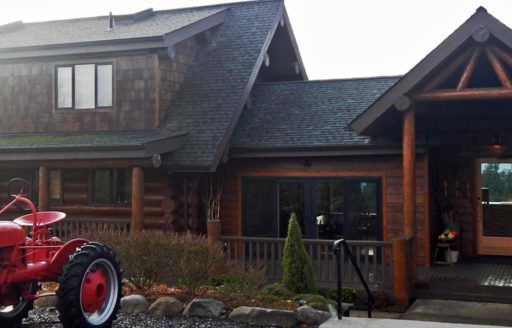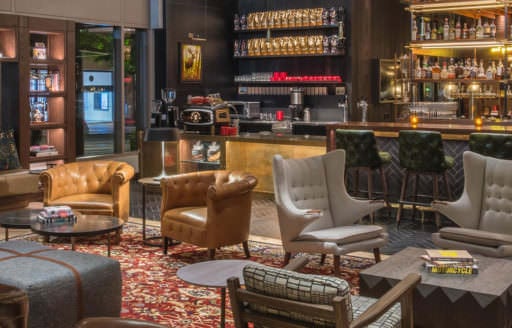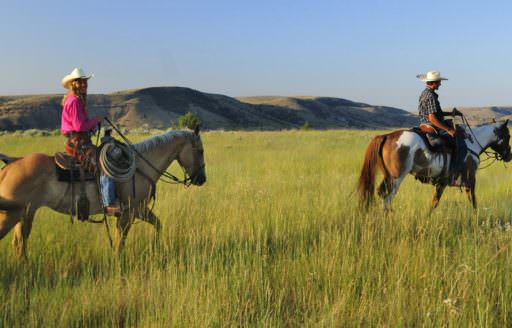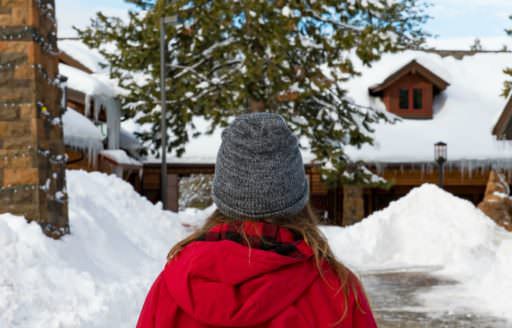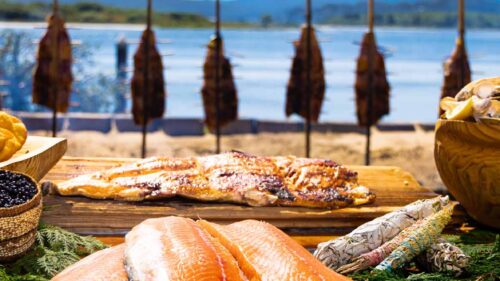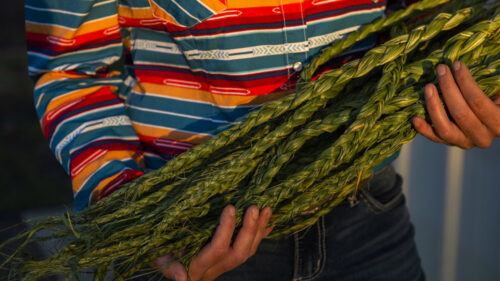Portland is home to an incredible range of cuisines, but until recently, one important cuisine was absent: Indigenous food. Thankfully, that’s changed with Javelina, an Indigenous restaurant that opened in Northeast Portland in 2025. Javelina is the only restaurant dedicated entirely to Indigenous cuisine in Oregon and one of only a handful on the West Coast.
Behind Javelina is chef Alexa Numkena-Anderson, an enrolled member of the Hopi tribe who also has Yakama, Skokomish, Cree and Mexican roots. Numkena-Anderson spent her early childhood on the Yakama Indian Reservation in Washington before moving to Spokane, where she got her first kitchen job to support herself and her three younger sisters. She came to Portland to pursue her love of cooking, where she worked with chefs including now-retired Vitaly Paley at Imperial and Headwaters and Melissa McMillan at Sammich.
Alexa and her husband, Nick, originally started Javelina as a pop-up in fall 2023 to help fill the need for Indigenous food in Portland. Javelina is really two restaurants in one. Javelina offers counter-service lunch and dinner, while Inɨ́sha, a six-course tasting menu dinner, combines storytelling and Indigenous ingredients. (Note: Inɨ́sha service is on hold until Fall 2025.)
What Is Indigenous Food?
Part of Javelina’s menu is based on fry bread, a comfort food for many Indigenous people — items like fry-bread tacos with bison chili, beef cheeseburgers with fry-bread buns, cinnamon-sugar fry bread with honey and butter. But Numkena-Anderson wants everyone to know that there’s much more to Indigenous cuisine than fry bread. In fact, fry bread’s main ingredient, flour, isn’t native to this continent; it was part of the government rations that Indigenous people survived on after they were forcibly displaced from their homelands and disconnected from their traditional foodways.
Instead, the rest of Javelina’s menu is based on ingredients native to this continent, known as non-colonial ingredients or first foods. You might find chinook salmon steamed in corn husks, rabbit soup with hominy, bison meatballs, or blue-corn tostadas with Rio Zape beans, a rarely seen variety cultivated by Indigenous people for centuries.
The name of Numkena-Anderson’s evolving dinner concept, Inɨ́sha, means “my daughter” in the Yakama tribal language — a dedication to the couple’s little girl. Available by reservation only, the menu consists exclusively of first foods, with proteins like bison, elk and tribal-caught fish taking the place of chicken, pork and beef. Gluten, dairy, flour and even cane sugar are nowhere to be found. Each course can be paired with wine from a woman, BIPOC or Indigenous producer, or with an Indigenous herbal tea.
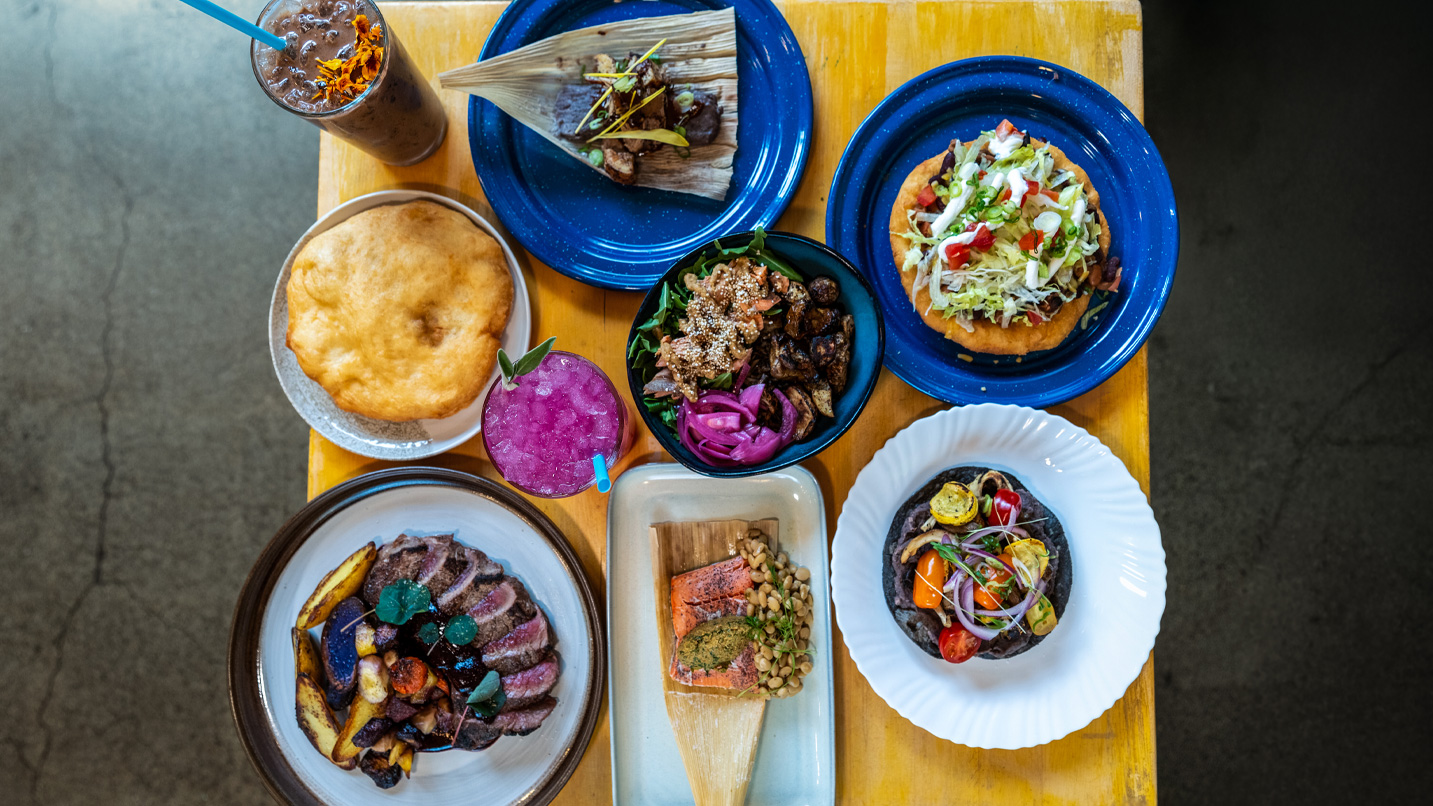
Experience Ingredients With a Story
Numkena-Anderson is part of a growing movement of Indigenous chefs — including others in Oregon — working to preserve, reclaim and raise awareness of Indigenous foodways. Between courses at Inɨ́sha, both of the Numkena-Andersons share Indigenous stories, provide information on ingredients and reminisce on family memories.
At a recent dinner, they told the story of the tepary bean, a variety that nearly went extinct until Indigenous farmers in Arizona revived it and began producing it commercially in the 1970s. A soup of white tepary beans, braised elk and hominy hit the table, perfect for a cool Portland evening.
Later they told the story of how the U.S. Army nearly drove bison to extinction, hoping that killing a major Indigenous food source would, in turn, kill off Native people. Bison rib eye with huckleberry sauce arrived skewered on spruce branches that Numkena-Anderson painstakingly prepared, plucking off all the needles except a few at the branch’s tip. The dish felt like a powerful symbol of pride and resilience — but also a memorial to those who were lost.
Numkena-Anderson draws on her tribal background for much of Inɨ́sha’s menu. Blue corn, an integral part of Hopi cuisine, was served at a recent dinner in someviki, a steamed corn dish wrapped in a corn husk similar to a tamale; it’s also the base of tostadas and berry cobbler. She blends four types of blue masa to get the texture just right. Smoked sturgeon, another recent dish, is served on a blue-corn tostada and garnished with red huckleberry, sea-buckthorn coulis and Indigenous-made olive oil. The fish is a nod to her Yakama heritage; historically an important food source for the Yakama Nation, the tribe established a hatchery to restore sturgeon populations in 2008.
Sometimes she tweaks dishes she grew up with, swapping conventional ingredients for Indigenous ones. To adapt her grandmother’s comforting potato soup with non-colonial alternatives, for example, she uses bison instead of bacon and swaps out Yukon Gold potatoes for Makah Ozettes, a variety grown by Indigenous people in the Pacific Northwest for over two centuries.
The chef uses products from other Indigenous-owned businesses wherever possible, many based in Oregon. Good Rain Farm near Portland grows everything from peppers to squash to Makah Ozette potatoes. Coffee comes from Native-owned Bison Coffeehouse in Northeast Portland. There’s an Indigenous-made pinot noir from Greywing Cellars in Yamhill. Hot sauce and herbal teas come from Sakari Farms near Bend. Other herbal teas come from Portland-based Hózhó Herbal Creations. Numkena-Anderson credits Hózhó’s Naabaahii tea blend — made from tulsi, lemon balm, rose hips and hawthorn berries — with reducing her postpartum anxiety after giving birth to her daughter.
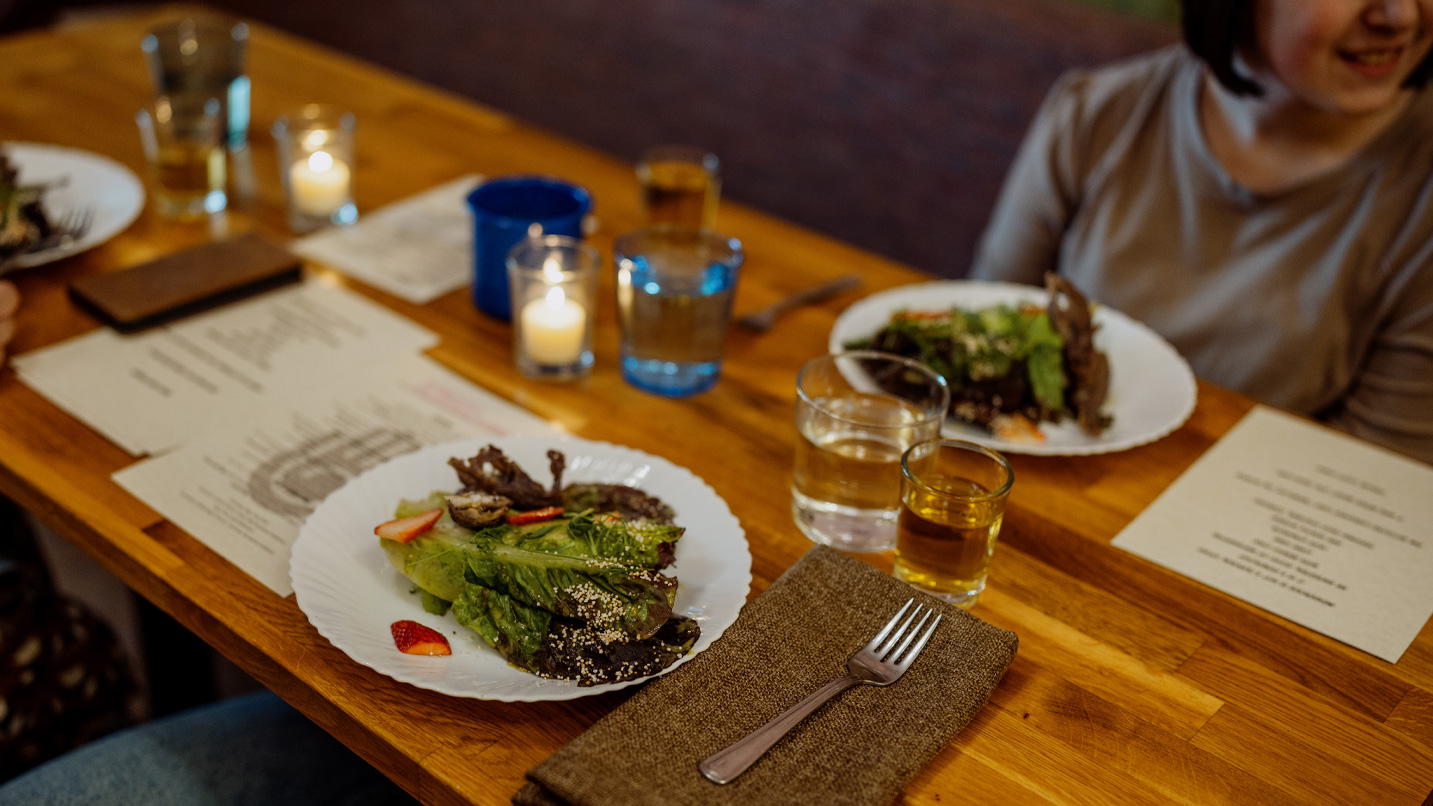
Creating a New Hub for Native Culture in Portland
Javelina is more than a restaurant; it’s a cultural hub for Indigenous people, especially those living in urban areas rather than on reservations. “Javelina has always been my bat signal, my call out to Native folks in the area,” she says.
During Javelina’s first week, the Northwest Native Chamber bought out the space for happy hour, flooding it with energy and joy. One weekend the Indigenous Rising Roller Derby team strolled in with members from all over the country donning their team jackets, fresh out of a tournament.
“The room was just full of Natives that were laughing. There’s something special about a Native laugh,” she says. “I was frying bread over there, on the brink of tears.”
As a chef cooking Indigenous food, Numkena-Anderson can now firmly count herself among her family’s upholders of tradition. One grandfather is a traditional Hopi musician, one uncle is an anthropologist, one aunt raises awareness for missing and murdered Indigenous people, and another aunt is an advocate for improving Indigenous education.
“I’m the oldest granddaughter in my family, so I should be responsible for passing on knowledge to the next generations,” she says. “But when we moved away from Toppenish [on the Yakama Reservation] when I was little and went to Spokane…I felt very disconnected from my teachings. It was always something that I grieved.”
By creating Javelina and Inɨ́sha, she knows her daughter will always have a place to connect with Indigenous people and culture.
“I never want there to be that lapse or that disconnect for my daughter,” she says. “Even her first solid food — I made sure it was squash.”



